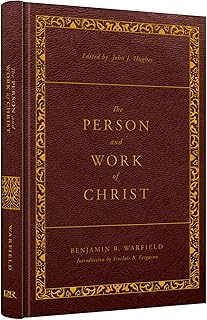PART FIVE Looking at Isaiah 52:13 – Isa. 53:12 in Light of the New Covenant Many lists of New covenant verses do not include Isaiah 52:13 to 53:12. But I believe there is justification for using it as at least a supporting passage for the study of the New covenant. Allow me to explain my reasons for this. Firstly, I have already drawn attention to the soteriological focus of the New covenant texts such as Deut. 30:6; Hos. 2:19-20; Isa. …
Category: Biblical Studies
PART FOUR Although being cognizant of Fredrickson’s research regarding pre-19th century commentators on Isaiah 42:6 and 49:8 I think a selection of quotes from representative scholarship will help drive my point home. My point being that it is not some novel view that understands the “covenant” in these texts as being, in fact, Jesus Himself. Many may wish to avoid saying “Jesus is the New covenant.” But I think it hard to circumvent the claim that “Jesus is the embodiment …
PART THREE The Form of a Divine Covenant Both Isaiah 42:6 and 49:8 include a messianic prediction of the Servant of Yahweh being “made as a covenant.” However, one quite often reads the objection “a person cannot be a covenant.” When I read such a statement I wonder to myself what it is about a covenant that prohibits a person from being one? Is a covenant a piece of paper with some writing and signatures? Or is it the ancient …
PART TWO Let me repeat the conclusion I arrived at previously: Jesus is the Redeemer who saves by the Spirit through the New covenant! Peter’s Speech at Jerusalem As Peter is rehearsing his experience at the house of Cornelius in Acts 11 he supplies as his main argument for God bringing salvation to the Gentiles the fact that they were given the Holy Spirit. And he made a point of saying the Spirit received by the Gentiles was “the same …
PART ONE Let me begin with a statement that will have to be defended, but which I think is difficult to argue against: Nowhere does the OT tell us that the New covenant is only intended for Israel. To that someone might (and will) very well direct my attention to Jeremiah 31:31-34 and its repetition in Hebrews 8:8-12. But that will not suffice. The context of the Jeremiah quote comes within what is known as “the Book of Consolation”, which …
Especially among Dispensationalists, the subject of the New covenant creates a bone of contention. Perhaps the majority Dispensationalists hold that the Church has no participatory relationship in the New covenant. Many others believe that the Church does participate in the trickle-down effects of the New covenant, which is still thought to be made with Israel as full parties. Then there are those, myself included, who believe that the Church is made a full party to the New covenant alongside of …
This repost comes from an interchange with some CT’s a while back. I think it typifies what I tend to run into when trying to communicate my reservations about CT. I kick it off with a remark made by my main interlocutor about God’s way of communicating. He declared that, God may do other than what the original audience understood. God’s promises will be fulfilled exactly in the way He intended. I replied with: “Well, that’s the trouble isn’t …
Many Christian interpreters of the Bible will readily call you anti-intellectual, obscurantist, and other nice epithets if you dare to believe the Bible really means what it says. You will be decried as a naive “wooden literalist.” Well, here’s a little something for you to meditate upon before you succumb to the hermeneutical sophisticates who look down their noses at you. The Book of Jeremiah is a good place to go for those seeking to establish a plain-sense biblical hermeneutic. …
This post comes in response to a brother in the Middle East who seems to be combating false teaching in this area. I hope that this helps. I have not included the apposite sections within the major Systematic Theologies, nor have I included the important critical studies of Dunn or Pannenberg (which are both worth reading). These books furnish a well-rounded portrait of the Jesus of the Bible and His identity as the God-Man. DOCTRINAL WORKS B. B. Warfield – …
At the 360 Conference I had several people ask me if I had recorded any lectures to act as companions to the two volumes of The Words of the Covenant. My answer was yes, but I realized that the TELOS channel isn’t the best to find them at. Here, then, are the lectures. There are 34 of them and they’re quite long. Originally they were presented as below: Biblical Theology of the Old Testament (1) Biblical Theology of the Old …

